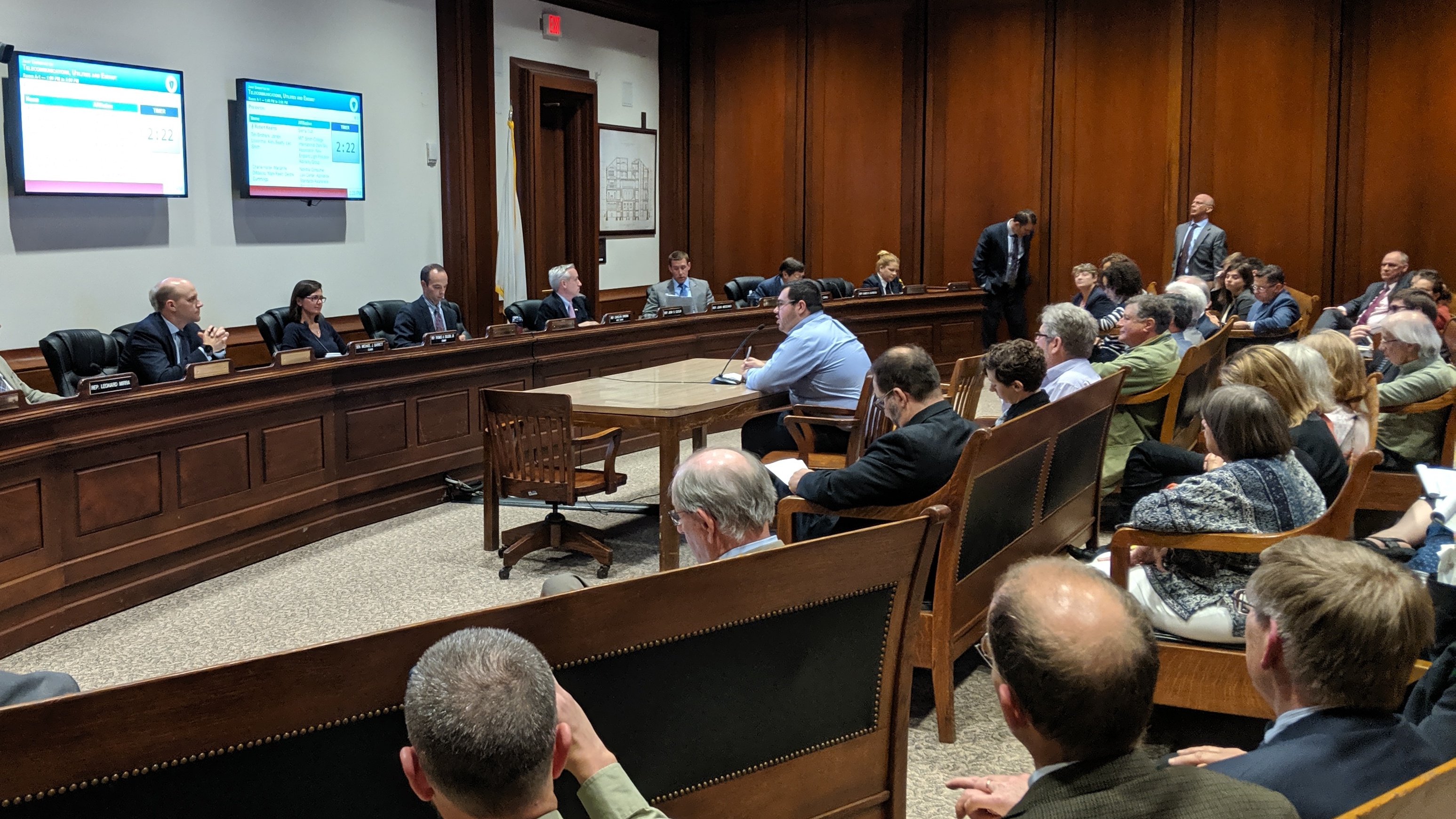 The following testimony was delivered by Executive Committee Member Robert Kearns to the Joint Committee on Telecommunications, Utilities, and Energy during their May 30th hearing on energy efficiency legislation. Robert is a recent graduate of UMass Amherst, a Braintree resident, and a lifelong environmental advocate.
The following testimony was delivered by Executive Committee Member Robert Kearns to the Joint Committee on Telecommunications, Utilities, and Energy during their May 30th hearing on energy efficiency legislation. Robert is a recent graduate of UMass Amherst, a Braintree resident, and a lifelong environmental advocate.
"On behalf of our 130,000 members and supporters across the Commonwealth, The Sierra Club Massachusetts Chapter is here in support of the Dark Sky Bills; Senate Bill 1937 and House Bill 2858.
Studies show that artificial light affects the quality of habitat and life cycles of wildlife. From migratory birds to sea turtles, there are serious concerns with light pollution impacting the natural world.
For example, evidence suggests that light pollution impacts the communication of fireflies. These famous insects communicate via flashes of light. Improper lighting and light pollution hinder them finding mates.
I recently graduated from the University of Massachusetts Amherst studying Environmental Science. I grew up in Braintree here in Eastern Mass and would rarely see dark skies and all of the stars that come with it.
I remember some family trips from my childhood where I saw the stars as I traveled up to the White Mountains of New Hampshire.
I was lucky that when I was at UMass living in Western Massachusetts I could enjoy the ability to gaze at the stars in the night sky. At UMass, I also had the great opportunity to see stars that can not be seen with the naked eye through the telescope at the Orchard Hill Observatory.
I am not the only person who loves looking at the night's sky. Thousands of tourists flock to dark sky locations throughout the Commonwealth.
Tourism is a significant industry in the Commonwealth. I see the impact on people getting connected to the outdoors as Outings Chair. People love taking hikes and discovering nearby nature. Recent studies have shown the importance of access to nature for mental and physical health. The National Parks Service recognizes the importance of dark skies as a public resource. Protecting and enhancing the dark sky will help increase the quality of life for residents and visitors of the Commonwealth.
More than 40 communities have dark sky bylaws. We are the only state in New England without dark sky legislation. Massachusetts is a leader state and must work to protect dark skies for all."